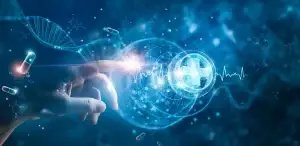Feeling Neck Pain After a Car Accident? It Could Be Whiplash
Neck pain after a car accident is a major red flag that you might have whiplash—but it’s not the only symptom. In fact, many people don’t feel pain immediately after an accident due to adrenaline and shock, only for symptoms to appear hours or even days later.
If you’ve recently been in a rear-end collision or any type of accident, understanding the signs, risks, and treatments for whiplash can help prevent long-term complications. Here’s what you need to know about diagnosing, treating, and recovering from post-collision whiplash.
What is Whiplash?
Whiplash is a soft tissue injury that occurs when the neck is forcefully whipped back and forth—similar to the motion of a cracking whip. This sudden movement can strain or tear muscles, tendons, and ligaments in the neck, leading to pain and stiffness.
Whiplash is most commonly caused by rear-end car accidents, but it can also result from:
✔ Contact sports injuries (such as football or boxing)
✔ Physical abuse or assault (such as being shaken or hit)
✔ Slips and falls that jerk the head backward
While mild whiplash cases heal within a few weeks, severe cases can lead to chronic pain, limited mobility, and long-term complications.
How Do I Know If I Have Whiplash?
Neck pain and stiffness are the most common signs of whiplash, but they aren’t the only symptoms. According to The Mayo Clinic, whiplash symptoms can also include:
Common Symptoms of Whiplash:
📌 Neck pain and stiffness (especially worsening with movement)
📌 Headaches (starting at the base of the skull)
📌 Tenderness or pain in the shoulders, arms, or upper back
📌 Tingling or numbness in the arms
📌 Fatigue or general weakness
📌 Dizziness or loss of balance
Less Common but Serious Symptoms:
⚠️ Blurred vision
⚠️ Ringing in the ears (Tinnitus)
⚠️ Difficulty sleeping or insomnia
⚠️ Irritability, mood swings, or depression
⚠️ Problems with memory or concentration (“brain fog”)
If you experience any of these symptoms after a car accident, seek medical attention immediately.
Why You Shouldn’t Ignore Whiplash Symptoms
Ignoring whiplash can lead to chronic pain and long-term complications. Some individuals develop permanent neck stiffness, headaches, or reduced mobility if left untreated.
🚨 Did You Know? 50% of whiplash patients still experience symptoms up to a year after their injury if they don’t receive proper treatment. (Journal of Orthopaedic & Sports Physical Therapy)
🚨 Studies show that women and older adults are at a higher risk of developing long-term complications from whiplash.
What Should You Do If You Have Whiplash?
If you suspect you have whiplash after an accident, early treatment is key to reducing inflammation, managing pain, and preventing long-term issues.
Step 1: Apply Ice to Reduce Swelling
❄️ Apply an ice pack for 15 minutes every 3–4 hours during the first 48–72 hours after the injury. Ice helps reduce swelling, inflammation, and muscle pain.
Step 2: Take Over-the-Counter Pain Medication
💊 NSAIDs like ibuprofen or acetaminophen can help reduce pain and inflammation. However, avoid relying on painkillers alone—they don’t treat the underlying injury.
Step 3: Keep Your Neck Moving (But Gently!)
🚶♂️ Rest is important, but completely immobilizing your neck for too long can slow down recovery. Gentle neck stretches and mobility exercises help prevent stiffness.
Step 4: See a Chiropractor or Physical Therapist
💆♂️ Trigger point therapy, chiropractic adjustments, and physical therapy can improve mobility, reduce scar tissue formation, and restore normal function.
Step 5: Avoid Strenuous Activities
❌ No heavy lifting, intense workouts, or sudden neck movements for at least a few weeks to allow healing.
How Long Does Whiplash Take to Heal?
Recovery time for whiplash depends on the severity of the injury:
✅ Mild whiplash: 1–3 weeks
✅ Moderate whiplash: 4–6 weeks
✅ Severe whiplash (with ligament damage or nerve involvement): 3–6+ months
Most patients recover within a few weeks to a couple of months, but delayed or untreated whiplash can lead to chronic pain lasting a year or more.
🚨 If your pain persists for more than 3 months, consult a pain specialist or neurologist.
When to See a Doctor for Whiplash
You should always see a doctor after a car accident, even if you feel fine at first. However, urgent medical attention is needed if you experience:
🚨 Severe neck pain that doesn’t improve with rest
🚨 Pain radiating down your arms or legs
🚨 Weakness, numbness, or tingling in your limbs
🚨 Dizziness, confusion, or memory loss
Can You Prevent Whiplash in a Car Accident?
While not all whiplash injuries are avoidable, you can reduce your risk by following these safety tips:
✔ Adjust Your Headrest Properly – Your headrest should be level with the top of your head to reduce neck movement in a crash.
✔ Wear Your Seatbelt – Proper seatbelt use can prevent severe whiplash in an accident.
✔ Sit Up Straight While Driving – Slouching increases strain on the neck during a collision.
✔ Keep a Safe Following Distance – Avoid sudden braking accidents that lead to rear-end collisions.
Final Thoughts: Don’t Ignore Whiplash—Get Treated Early
If you’ve been in a car accident and suspect whiplash, the sooner you seek treatment, the better your recovery. Delaying care increases the risk of chronic pain, stiffness, and long-term complications.
🚗 Key Takeaways:
✔ Whiplash symptoms may not appear immediately—watch for delayed pain.
✔ Neck pain, headaches, dizziness, and numbness are warning signs.
✔ Ice, rest, and physical therapy can speed up recovery.
✔ Seek medical attention immediately if pain worsens or spreads.
✔ Early chiropractic care and physical therapy help prevent chronic pain.
💡 Need a whiplash specialist? Find the best car accident doctor near you to start your recovery today!
About the Author:
Ryan B. Bormaster is the managing attorney at Bormaster Law. The law firm practices in a number of areas but specializes in 18 Wheeler Accidents, Accidents with Commercial Vehicles such as Work Trucks and Catastrophic Injuries of all kinds.
.




 Since 2012, Accident Doctor has been dedicated to connecting personal injury patients and attorneys with qualified physicians who specialize in treating accident-related injuries. Our nationwide network includes experienced medical professionals who provide care for individuals involved in car accidents, motorcycle accidents, truck and tractor-trailer collisions, slip and fall incidents, and workers’ compensation cases.
Since 2012, Accident Doctor has been dedicated to connecting personal injury patients and attorneys with qualified physicians who specialize in treating accident-related injuries. Our nationwide network includes experienced medical professionals who provide care for individuals involved in car accidents, motorcycle accidents, truck and tractor-trailer collisions, slip and fall incidents, and workers’ compensation cases.